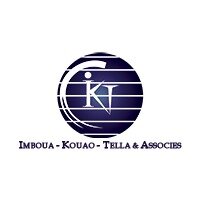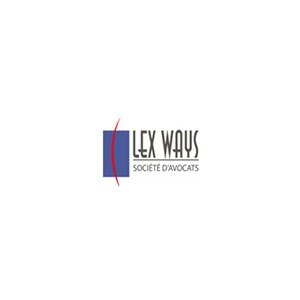Best Foreclosure Lawyers in Ivory Coast
Share your needs with us, get contacted by law firms.
Free. Takes 2 min.
Free Guide to Hiring a Real Estate Lawyer
Or refine your search by selecting a city:
List of the best lawyers in Ivory Coast
About Foreclosure Law in Ivory Coast
In Ivory Coast, foreclosure refers to the legal process by which a lender can repossess a property from a borrower who has failed to make mortgage payments. Foreclosure laws in Ivory Coast are designed to protect both the rights of the borrower and the lender. It is important for individuals facing foreclosure to seek legal advice to understand their rights and explore potential options.
Why You May Need a Lawyer
There are several situations in which individuals may require legal help for foreclosure in Ivory Coast. This includes facing financial difficulties that make it challenging to make mortgage payments, receiving a foreclosure notice from the lender, or wanting to explore options such as loan modification or refinancing. A lawyer can provide guidance, negotiate with the lender on your behalf, and represent you in legal proceedings if necessary.
Local Laws Overview
In Ivory Coast, the foreclosure process is governed by the Code Civil and the Code des Procédures Civiles, as well as specific regulations relating to mortgages. Key aspects of local laws relevant to foreclosure include notice requirements, timeframes for responding to a foreclosure notice, and the rights of borrowers to seek alternative solutions to foreclosure.
Frequently Asked Questions
1. What is the foreclosure process in Ivory Coast?
The foreclosure process in Ivory Coast typically begins with the lender sending a notice of default to the borrower. If the borrower does not remedy the default, the lender can proceed with the foreclosure by initiating legal proceedings in court.
2. Can I stop a foreclosure once it has started?
It may be possible to stop a foreclosure by working with a lawyer to negotiate with the lender, seek a loan modification, or explore other options such as refinancing or selling the property.
3. Are there any alternatives to foreclosure in Ivory Coast?
Yes, alternatives to foreclosure in Ivory Coast include loan modification, refinancing, short sales, and deeds in lieu of foreclosure. It is advisable to seek legal advice to understand these options and their implications.
4. What are my rights as a borrower facing foreclosure?
Borrowers facing foreclosure in Ivory Coast have rights, including the right to receive a notice of default, the right to seek legal advice, and the right to explore alternatives to foreclosure. It is important to understand these rights and how they apply to your specific situation.
5. How can a lawyer help me with foreclosure in Ivory Coast?
A lawyer can help you understand your rights, explore options to avoid foreclosure, negotiate with the lender on your behalf, and represent you in court proceedings if necessary. Seeking legal advice early can help protect your interests and potentially avoid foreclosure.
6. What are the consequences of foreclosure in Ivory Coast?
The consequences of foreclosure in Ivory Coast include the loss of the property, damage to your credit score, and potential legal consequences if the sale of the property does not cover the outstanding debt. It is important to seek legal advice to understand the implications of foreclosure.
7. Can I sell my property before foreclosure in Ivory Coast?
Yes, you can sell your property before foreclosure in Ivory Coast. This may help you avoid foreclosure and minimize the impact on your credit score. However, it is advisable to seek legal advice to ensure that the sale proceeds are sufficient to cover the outstanding debt.
8. Is it possible to reinstate a mortgage after foreclosure in Ivory Coast?
It may be possible to reinstate a mortgage after foreclosure in Ivory Coast by paying the outstanding debt, including any fees and costs incurred during the foreclosure process. However, it is advisable to seek legal advice to understand the requirements for reinstating a mortgage and explore alternative options.
9. How long does the foreclosure process take in Ivory Coast?
The foreclosure process in Ivory Coast can vary depending on the specific circumstances of the case and the efficiency of the legal system. It is important to seek legal advice to understand the timeframe for responding to a foreclosure notice and navigating the legal process.
10. Where can I find legal assistance for foreclosure in Ivory Coast?
You can find legal assistance for foreclosure in Ivory Coast by contacting a reputable law firm that specializes in real estate and property law. Additionally, you may seek assistance from legal aid organizations, consumer advocacy groups, or government agencies that offer support for individuals facing foreclosure.
Additional Resources
For additional resources related to foreclosure in Ivory Coast, you may consider contacting the Ministry of Housing and Urban Development, the National Council of the Ivory Coast Bar Association, or the Real Estate Regulatory Authority. These organizations may provide guidance, support, and information on legal options for foreclosure.
Next Steps
If you are facing foreclosure in Ivory Coast or have questions about your rights and options, it is important to seek legal advice as soon as possible. A lawyer can help you understand the foreclosure process, explore alternatives, and protect your interests throughout the legal proceedings. Contact a legal professional with experience in foreclosure law to discuss your situation and determine the best course of action. Remember, early intervention and careful consideration of your legal options can help you navigate the challenges of foreclosure successfully.
Lawzana helps you find the best lawyers and law firms in Ivory Coast through a curated and pre-screened list of qualified legal professionals. Our platform offers rankings and detailed profiles of attorneys and law firms, allowing you to compare based on practice areas, including Foreclosure, experience, and client feedback.
Each profile includes a description of the firm's areas of practice, client reviews, team members and partners, year of establishment, spoken languages, office locations, contact information, social media presence, and any published articles or resources. Most firms on our platform speak English and are experienced in both local and international legal matters.
Get a quote from top-rated law firms in Ivory Coast — quickly, securely, and without unnecessary hassle.
Disclaimer:
The information provided on this page is for general informational purposes only and does not constitute legal advice. While we strive to ensure the accuracy and relevance of the content, legal information may change over time, and interpretations of the law can vary. You should always consult with a qualified legal professional for advice specific to your situation.
We disclaim all liability for actions taken or not taken based on the content of this page. If you believe any information is incorrect or outdated, please contact us, and we will review and update it where appropriate.
Browse foreclosure law firms by city in Ivory Coast
Refine your search by selecting a city.











